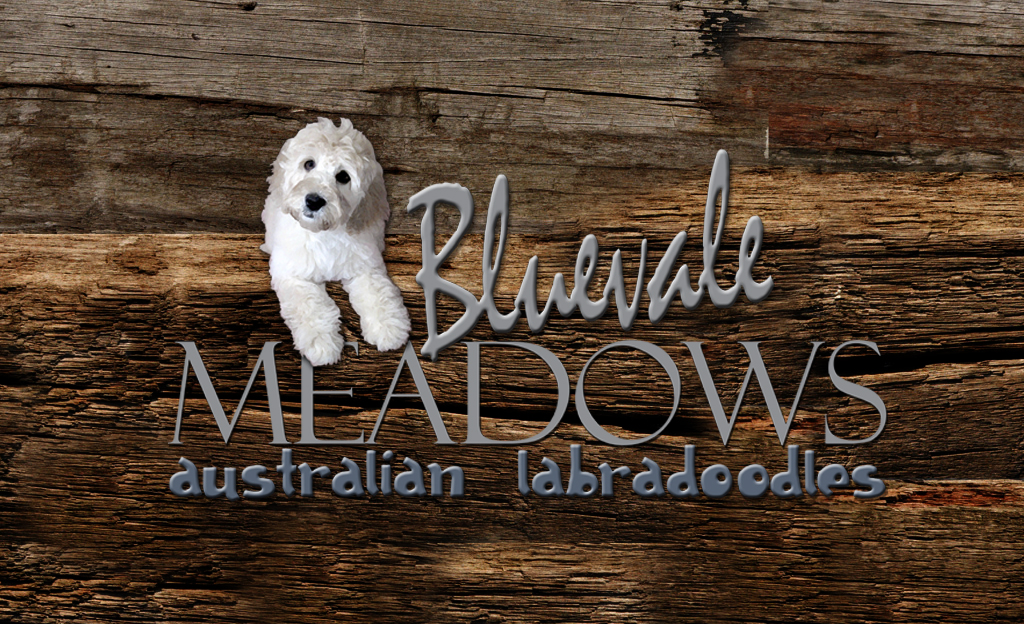How Our Pups Are Raised
~ Located Near Wingham, On ~
A Calm, Intentional Start to Life at Bluevale Meadows
From the very beginning, our puppies are raised with purpose. They’re born and raised right here in our home — not in a kennel — where they experience gentle handling, thoughtful exposure, and age‑appropriate challenges that help them grow into confident, resilient companions. Every step we take with them has meaning, from early neurological work to the first little mazes they wobble through. Our goal is simple: to give each puppy the strongest, healthiest start we can before they head off to their forever families.

Early Neurological Work, Early Scent Introduction & Purposeful Handling
We begin Early Neurological Stimulation (ENS) and Early Scent Introduction (ESI) with our puppies as early as day 3. These gentle exercises help support healthy brain development, resilience, and confidence as the puppies grow.
As ENS and ESI wrap up, we move into our 10 Steps to Purposeful Handling. This is where puppies learn that human hands near their eyes, nose, ears, paws, toes, tail, and collar are safe and normal. It’s simple work, but it makes a world of difference — preparing them for a lifetime of being handled by groomers, veterinarians, and the people who love them.
Let the Fun Begin… Early Exposure, New Textures & Potty‑Spot Imprinting
Once the puppies are about two and a half weeks old, the real fun begins. We start introducing them to age‑appropriate sights, sounds, and experiences — always gently, always with intention. Weeks 2.5 to 4 include brief loud noises, new daily items in the whelping box, different tactile surfaces under their feet, and a designated place to go potty.
This early work helps imprint the idea that there’s a spot for that — a simple concept that lays the groundwork for future potty training.
Leaving the Den & Crate Imprinting
Once the puppies are ready to “leave the den,” we introduce two styles of crates for their naps and nighttime sleep. They take to them gladly. Seeking out a cozy, enclosed space is a natural behaviour for puppies, so we offer both a wire crate and a travel‑style crate and let them choose which they prefer.
This early crate imprinting helps them see the crate as a safe, restful place — not something to fear or resist. It makes the transition into their new homes much easier for both puppy and family.
Obstacle Objects & Mazes to Help Build Confidence
Around weeks 4 and 5, we begin daily obstacle work with the puppies. This is where their little personalities really start to shine. We guide them through fun mazes and introduce “up, over, and under” objects of different shapes, sizes, and tactile surfaces. They continue to hear new sounds each day as part of their growing world.
They also learn that there is a time for play and a time for rest. Daily nap time is important — it gives their brains the chance to absorb everything they’ve just learned and helps them build confidence without becoming overwhelmed.
Stepping It Up & Imprinting a Recall Along the Way
By weeks 6, 7, and 8, the puppies are ready for a little more challenge — and they love it. At this age, they’re confident enough to take on new experiences with enthusiasm, and we step in only to cheer them on when needed. From free‑play areas in and around our home and gardens to obstacle courses with no turning back, they’re eager to explore it all.
Alongside this, we layer in common‑sense early training: imprinting a solid recall, introducing the beginnings of “sit,” and encouraging natural manding behaviours. These simple foundations help shape a puppy who is eager and willing to learn, setting them up beautifully for the training that will continue in their new homes.
Ready for the Next Phase of Life
By nine weeks old, our puppies are ready to take on the next steps in socialization and family life with you. To help bridge the gap between leaving us and starting a formal puppy class elsewhere, we provide our families with a complimentary first month of access to the Dunbar Training Academy. This allows new owners to continue their puppy’s learning from the moment they arrive home, keeping the momentum going during those important early weeks.
